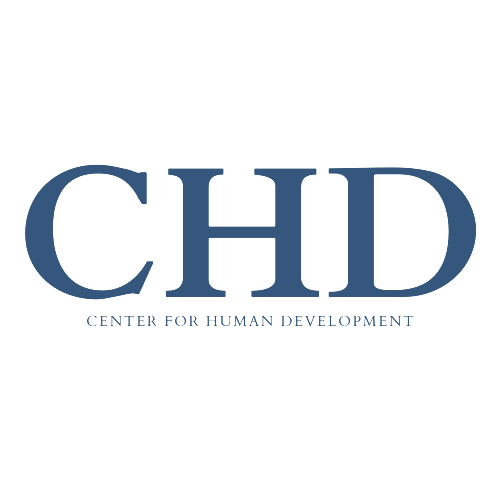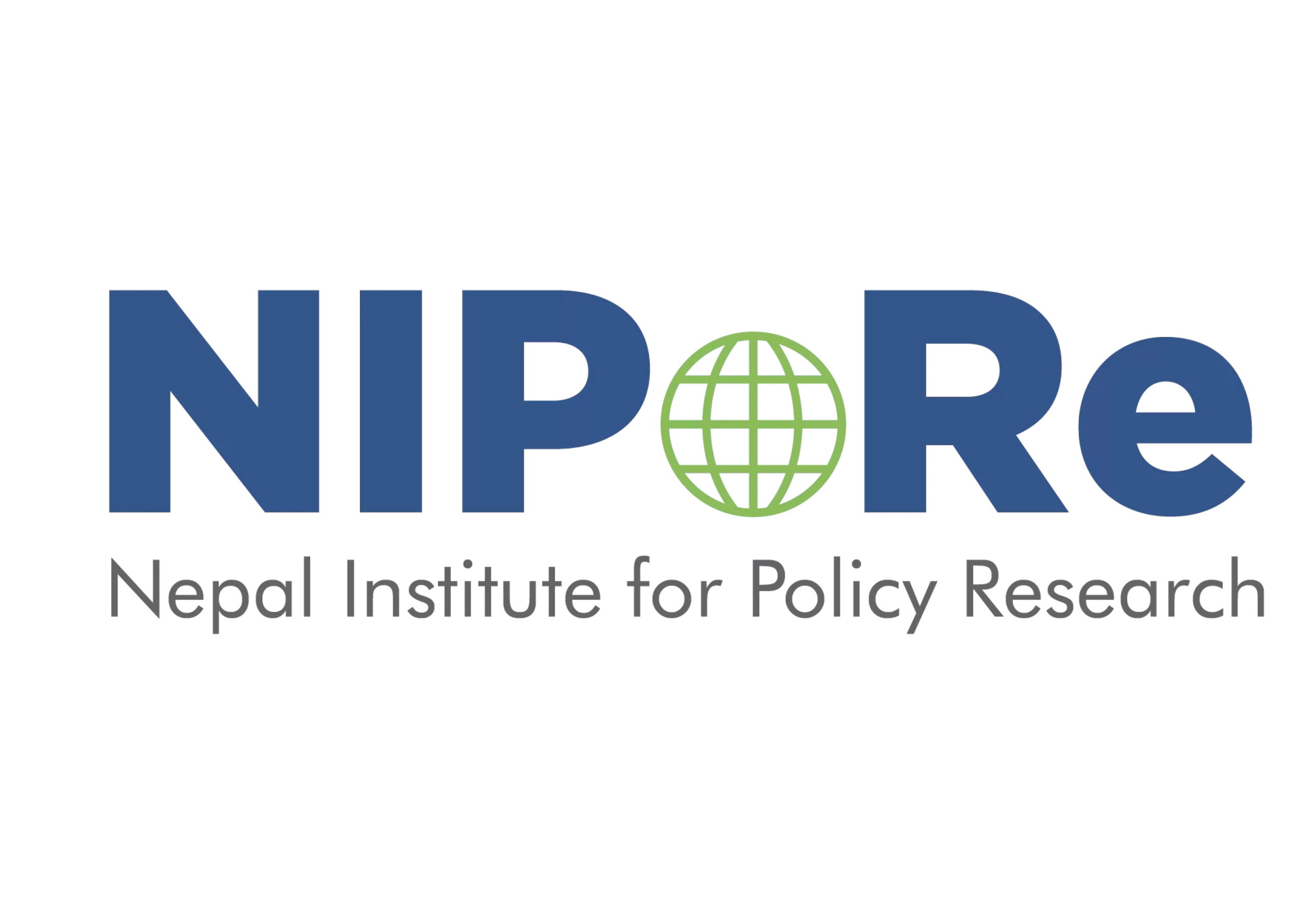The Nepal Institute for Policy Research (NIPoRe) is a Kathmandu-based policy think tank. It generates evidence-based debates on contemporary policy issues in Nepal and Asia for both the public and private sectors. The institution currently works on high policy priority areas through four research centers – the Center for New Economy and Inequality (CNEI), the Center for Strategic Affairs (CSA), the Center for Governance Studies (CGS), and the Center for Human Development (CHD).
RECENT PUBLICATIONS

South Asia Bulletin – Vol 2, Issue 8 | April 2024
India’s month-long election season kicked off in April. Pakistan formed a government under the leadership of Shehbaz Sharif, with Asif Ali Zardari elected president (a largely ceremonial role). Indian and Bhutanese prime ministers exchanged visits, and Maldives forced India to start replacing Indian military personnel stationed in the country with ‘civilian experts.’ China held its two sessions amidst concerns over the economy, while its ‘iron brother’ Pakistan reached a staff-level agreement with the IMF for the final tranche of the bailout agreement. Read this and more in this issue of South Asia Bulletin. In the long read section, read about the pollution and unemployment in the South Asian region.
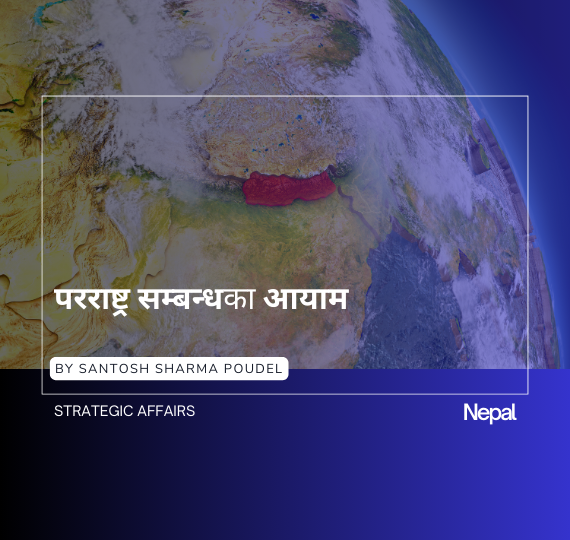
परराष्ट्र सम्बन्धका आयाम
कुनै पनि देशको अन्तर्राष्ट्रिय सम्बन्धका बहुआयामिक पक्ष हुन्छन् । परराष्ट्र नीतिका केही पक्ष स्थायी हुन्छन् भने अन्य पक्ष परिवर्तनशील । तर जस्तोसुकै पक्षका कथन भने समयानुकूल परिवर्तन भइरहन्छन् । यही क्रममा नेपालको परराष्ट्र नीतिका बारेमा हुने (अथवा नहुने) चारवटा महत्त्वपूर्ण विषयको कथनका सम्बन्धमा यो लेख केन्द्रित रहनेछ ।

Economy Fact 5 – Tourism in Post-Covid-19 Nepal
The Nepal Tourism Board (NTB) has recently released the monthly tourism statistics for March 2024, showcasing a remarkable upsurge in tourist arrivals following the aftermath of the Covid-19 pandemic. In this period, Nepal warmly greeted 128,167 tourists, marking a substantial 28.9 percent increase from the 99,426 tourists received in March 2023, as the Nepal Tourism Board (NTB) reported. The tourism sector in Nepal, a vital component of the national economy, encountered significant hurdles during the COVID-19 crisis. The Nepal Rastra Bank data indicates that this sector employs 20 percent of Nepal’s workforce and contributes approximately three percent to the GDP. Post-pandemic, Nepal has observed a consistent rise in tourist numbers, notably illustrated by the positive trend witnessed in March 2024.
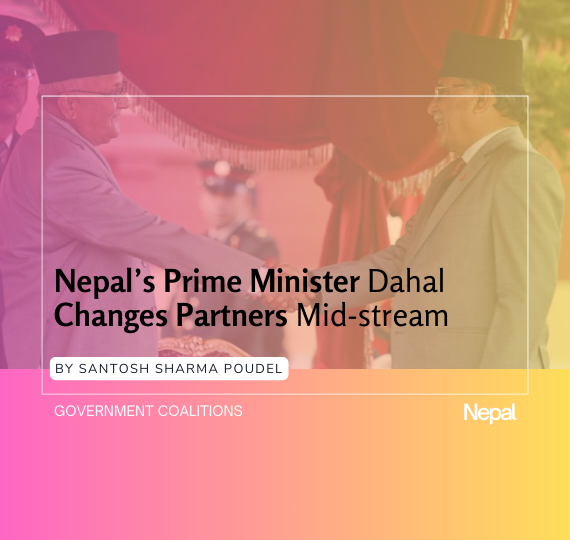
Nepal’s Prime Minister Dahal Changes Partners Mid-stream
Writing for The Diplomat Magazine, Santosh Sharma Poudel argues that Prachanda’s change of partners has more to do with domestic politics and personal interest than influence from neighboring powers.

Regulatory Gaps in Nepal’s Fintech
The fintech sector is one of the fastest-growing industries in the world, offering numerous opportunities and challenges for developing countries like Nepal. As Nepal’s digital payment industry is growing, examining the NRB’s current regulatory policies relating to PSPs (E-sewa and Khalti) and PSOs (Nepal Clearing House Limited and Nepal Electronic Payment System) is crucial.
Join Our Experts’ Roster
We believe policy making is a complex process and thus requires inputs from professionals from
across sectors and disciplines.
FEATURED PUBLICATION

Nepal Competitiveness Index 2024
The second edition of Nepal Competitiveness Index evaluates Nepal’s seven provinces across 64 indicators in areas like macroeconomic stability, government framework, and quality of life. Bagmati province leads in competitiveness, while Sudurpaschim and Karnali provinces face challenges. In addition, the NCI 2024 also assesses seven provinces’ digital competitiveness. The report aims to guide policymakers in fostering inclusive growth and prosperity in Nepal’s all seven provinces.
FEATURED INITIATIVES
EVENTS
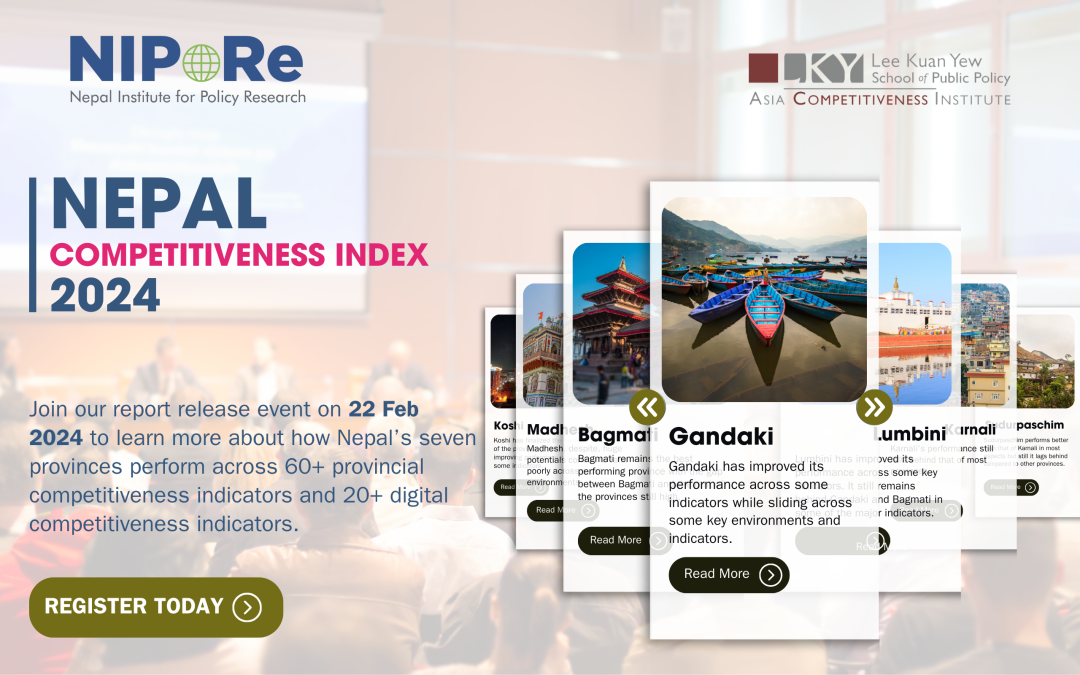
Release Event of the Nepal Competitiveness Index 2024
The Nepal Competitiveness Index 2024 is a joint-research initiative of the Nepal Institute for Policy Research (NIPoRe) and the Asia Competitiveness Institute (ACl) at the Lee Kuan Yew School of Public Policy, National University of Singapore. NIPoRe and ACI are launching the final study report on 22 Feb 2024 amid one event in Kathmandu followed by events across the province capitals.

The Study Report Release on “Nomination and Electability: The Role of Gender Norms in Nepal’s Local Elections”
The Nepal Institute for Policy Research (NIPoRe) released the study report titled "Nomination and Electability: The Role of Gender Norms in Nepal's Local Elections" amid one event in Kathmandu. The...

Webinar – Nepal’s Digitalization Journey | Nepal Competitiveness Index (NCI)
Nepal has seen tremendous growth in the number of internet users in the past decade. The country currently has 95.8 percent (mobile broadband) and 35.5 percent (fixed broadband) internet penetration...

Diplomats’ Forum with H. E. Nona Deprez, the EU Ambassador to Nepal
The Nepal Institute for Policy Research (NIPoRe) is hosting the fourth session of the Diplomats’ Forum on 22 December 2022 with H.E. Nona Deprez, the European Union Ambassador to Nepal. Ms. Sewa...
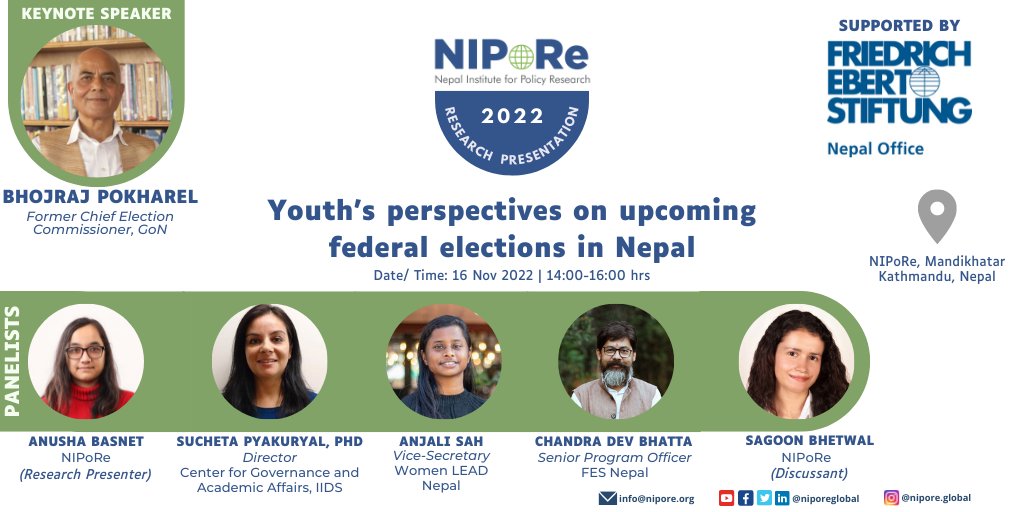
Research presentation on “Youth’s perspectives on upcoming federal elections in Nepal”
With support from the Friedrich-Ebert-Stiftung (FES) Nepal Country Office, NIPoRe will host a pre-study report release event on 16 November 2022 in Kathmandu. The final study report on "Youth’s...
RESEARCH CENTERS
NIPoRe has four research centers, each specializing in one specific policy area. All centers have resident and non-resident staff working on high priority public policy issues from Nepal and Asia.
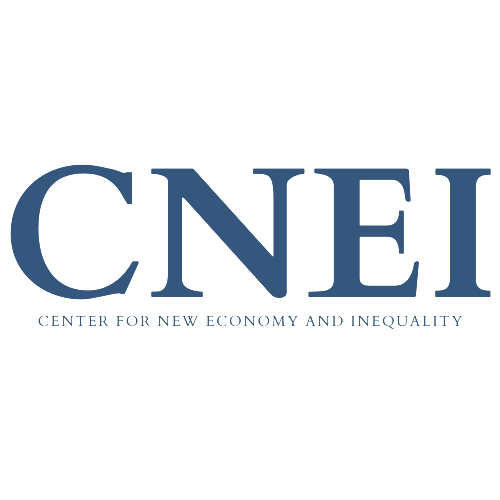
Center for New Economy and Inequality
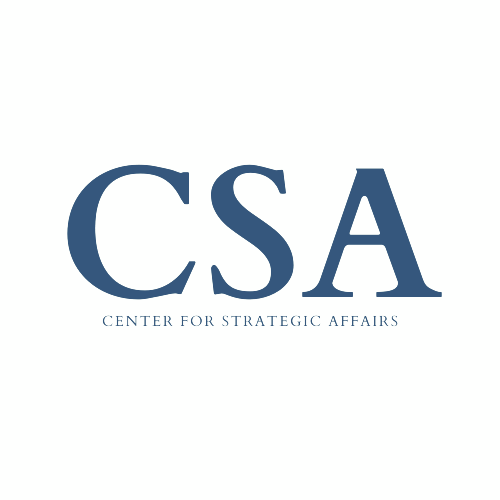
Centor For Strategic Affairs
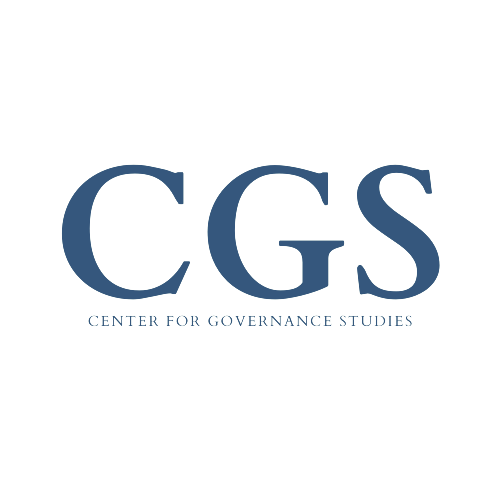
Center for Governance Studies
